Why India’s prime minister Modi is visiting Uganda
Our Distinguished Fellow in Foreign Policy Studies, Amb. Rajiv Bhatia, was mentioned in an article in the Daily Monitor leading up to PM Modi’s visit to Uganda. Read the full article here.
 Courtesy:
Courtesy:
Our Distinguished Fellow in Foreign Policy Studies, Amb. Rajiv Bhatia, was mentioned in an article in the Daily Monitor leading up to PM Modi’s visit to Uganda. Read the full article here.
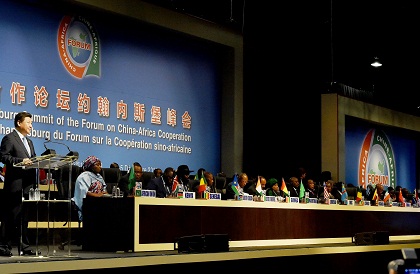 Courtesy: GovernmentZA/ Flickr
Courtesy: GovernmentZA/ Flickr
China’s judicious deployment of economic diplomacy—in sectors ranging from infrastructure and agriculture to skill development--has enabled it to develop relations with several African countries. India, Africa’s oldest partner, which is diversifying its own relationship, can replicate parts of China’s approach
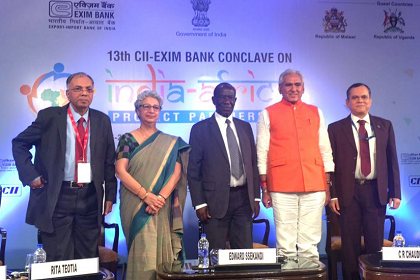 Courtesy: Exim Bank of India
Courtesy: Exim Bank of India
The India-Africa economic partnership lags some way behind the diplomatic reciprocity the two countries share. Africa has had a trade surplus with India in the past decade, but increasing two-way trade of goods and services across sectors calls for serious promotional measures and removal of non-tariff barriers. The government, Indian business and their African partners need to devise an action plan that can take trade to $100 billion and investment to $75 billion by 2022
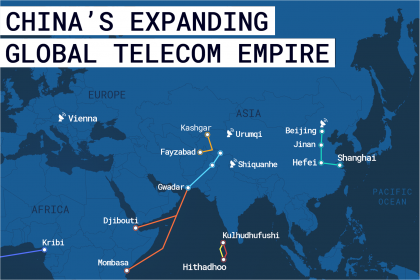 Courtesy: Gateway House
Courtesy: Gateway House
China is steadily deploying state-of-the-art communications systems to connect its strategic and economic assets in Asia. It is then linkingthe Asian mainland to Africa, and Africa to South America. The investment spree is rapidly making Beijing a major player in global telecommunications – and ‘informationisation warfare’.
Cyrus Rustomjee, Senior Fellow, Global Economy Program, Centre for International Governance Innovation, Canada, spoke to Gateway House on how the Blue Economy offers exciting opportunities to even the poorest developing countries to eradicate poverty
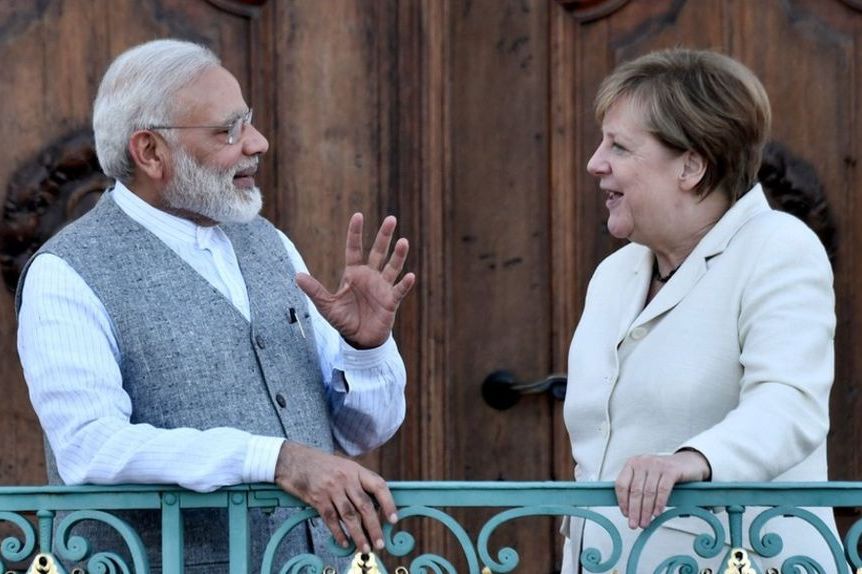 Courtesy: BBC
Courtesy: BBC
Germany and India have revealed a dual priority for Africa: creating opportunities for prosperity and promoting stability. For both, these are uncharted waters and represents a shift in the locus of global dynamism, away from an Anglo-Saxon world order to a more diverse yet potentially fissiparous one
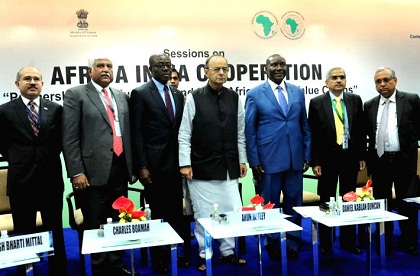 Courtesy: Prokerala
Courtesy: Prokerala
India seems to have departed from catch-all, overarching initiatives in Africa to rather more nuanced ways of making its contribution felt, such as helping fashion G20’s ‘Compact with Africa’. Many countries are also keen to avail of Indian companies’ knowledge and experience of investing in Africa and the presence of the large diaspora—and such trilateral cooperation is to be welcomed

The past decade has witnessed an evolution of India-Africa relations especially since the implementation of Modi's Act East policy. There is also a growing realisation of the strategic and geopolitical value of the Indian Ocean region. This speech highlights the policies needed to strengthen India-Kenya relations and tap the wealth of resources in this Blue Economy.
 Courtesy: Gateway House
Courtesy: Gateway House
Trends in technology, geopolitics and geoeconomics have dramatically transformed the global energy scenario in the last two years. This means favourable conditions for import-dependent India, which must use the opportunities available to reduce its vulnerability to high energy prices. The jump in oil prices past the $60 mark suggests that India must act with alacrity. India’s Energy Footprint Map offers a profile of India’s global trade and investment in energy, and indicates what India can do to access cheap and reliable supplies
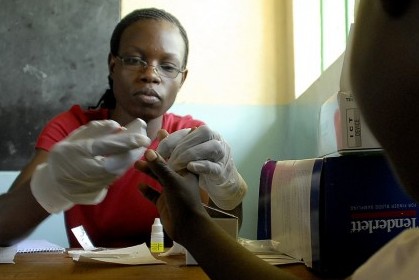 Courtesy: Flickr/U.S. Army Africa
Courtesy: Flickr/U.S. Army Africa
New Delhi now has the capacity to move beyond the basics of economic diplomacy by using the strengths of India's private sector in healthcare. Africa would welcome such an initiative, which will improve the health and development capabilities of African countries. This will also serve India’s geopolitical objectives and can precede a similar healthcare rollout to other regions